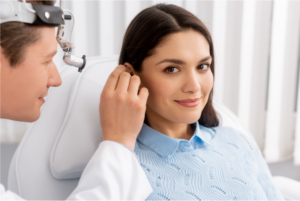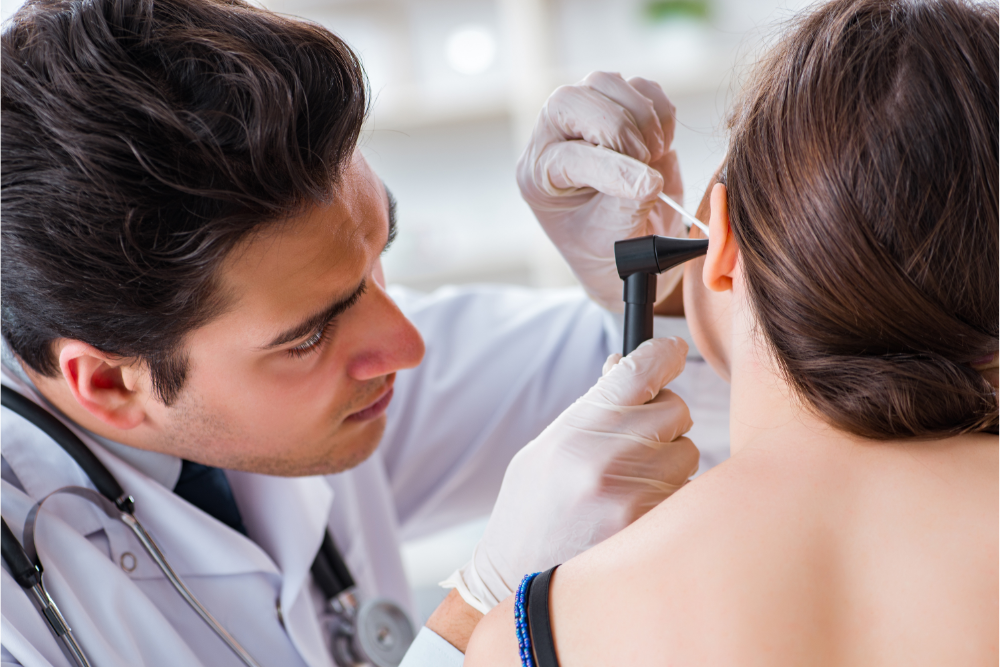Ear pain is a common complaint that can be frustrating and distracting, whether it’s a dull ache, sharp pain, or even a sensation of pressure or fullness. Many people experience ear pain at some point, and while it can be uncomfortable, understanding the potential causes is the first step to finding relief. Ear pain can stem from various sources, including infections, blockages, injuries, or even issues with nearby areas like the throat or jaw. Here, we’ll explore the top eight causes of ear pain, particularly focusing on how an ENT doctor in Los Angeles might diagnose and treat them.
1. Ear Infections
Ear infections are one of the most common causes of ear pain. They occur when bacteria or viruses enter the middle ear, often through the Eustachian tube, leading to inflammation and fluid buildup. Ear infections are most common in children but can also affect adults.
Symptoms of an ear infection include ear pain, difficulty hearing, a feeling of fullness, and sometimes fever. Ear infections often follow a cold or respiratory infection that causes swelling in the Eustachian tube, trapping fluid in the middle ear.
ENT doctors in Los Angeles typically diagnose ear infections by examining the ear with an otoscope, a tool that allows them to see the ear canal and eardrum. Treatment often involves antibiotics for bacterial infections and over-the-counter pain relief to reduce discomfort.
2. Earwax Buildup
Earwax, or cerumen, naturally protects the ear canal from dust, debris, and infections. However, too much earwax can harden and block the ear canal, causing pain, a sense of fullness, and even temporary hearing loss. This condition, known as impacted earwax, can be especially common for people who use earplugs, hearing aids, or cotton swabs, which can push wax deeper into the ear canal.
An ENT specialist can safely remove impacted earwax using special instruments or flushing it out with warm water. Avoid using cotton swabs to clean inside the ear canal, as they can worsen the buildup or even damage the eardrum.
3. Swimmer’s Ear (Otitis Externa)
Swimmer’s ear, also known as otitis externa, is an infection of the ear canal, often caused by moisture trapped in the ear after swimming or bathing. The trapped water creates an ideal environment for bacteria to grow, leading to infection. Symptoms of swimmer’s ear include ear pain, itching, redness, and a feeling of fullness. In severe cases, there may also be discharge from the ear.
ENT doctors in Los Angeles treat swimmer’s ear with antibiotic eardrops to kill the bacteria causing the infection. To prevent swimmer’s ear, dry your ears thoroughly after swimming or bathing and avoid inserting objects into your ear canals.
4. Sinus Infections
Sinus infections, or sinusitis, can also cause ear pain. The sinuses are located near the ears, and when they become inflamed due to infection, it can create pressure that radiates to the ears. This pressure can lead to a dull ache or fullness in the ear, making it feel like an ear problem.
If an ENT doctor suspects sinusitis is causing ear pain, they may recommend decongestants or saline nasal sprays to relieve sinus pressure. In some cases, antibiotics may be necessary if the sinus infection is bacterial. Treating the underlying sinus infection usually alleviates the ear pain.
Also Read: Does Diet Have an Impact on Sinus Infections and Allergies?
5. Temporomandibular Joint (TMJ) Disorders
The temporomandibular joint (TMJ) connects the jawbone to the skull, and disorders in this joint can lead to pain that radiates to the ear. TMJ disorders often result from teeth grinding, jaw clenching, arthritis, or injury. Symptoms of TMJ disorders include jaw pain, clicking sounds, and ear pain, which may worsen when chewing or talking.
An ENT specialist may work with a dentist or oral surgeon to diagnose and treat TMJ disorders. Treatments often include jaw exercises, pain relievers, or a night guard to prevent teeth grinding. In severe cases, surgery may be recommended to correct the joint problem.
6. Eustachian Tube Dysfunction
The Eustachian tubes connect the middle ear to the back of the throat, helping to regulate air pressure in the ear. When these tubes become blocked due to allergies, colds, or sinus infections, it can create a feeling of pressure and pain in the ear. Eustachian tube dysfunction often leads to a “popping” or “crackling” sensation in the ears and can affect balance.
ENT specialists may treat Eustachian tube dysfunction with decongestants, nasal sprays, or antihistamines to reduce inflammation and open the tubes. For chronic cases, a procedure called Eustachian tube dilation may be recommended to improve drainage and reduce symptoms.
Also Read: Common Eustachian Tube Dysfunction Disorders: Symptoms and Treatments
7. Ear Injuries or Trauma
Injuries to the ear can cause pain and discomfort, whether from an accidental blow to the ear, sudden loud noises, or even rapid changes in air pressure (such as during airplane travel). This type of ear pain can vary depending on the severity of the injury and may also be accompanied by hearing loss, ringing in the ear (tinnitus), or dizziness.
ENT doctors can evaluate the extent of the injury and provide appropriate treatment, which may range from pain relief to more extensive care if the eardrum or inner ear is damaged. In some cases, surgical intervention may be necessary if the injury is severe.
8. Foreign Objects in the Ear
Foreign objects in the ear, like small toys, insects, or even cotton swabs, can cause pain, especially if they block the ear canal or press against sensitive areas. This issue is particularly common in young children who may place small objects in their ears out of curiosity.
If there is a foreign object in the ear, it’s essential to see an ENT specialist rather than trying to remove it yourself, as improper removal can damage the ear. ENT doctors use specialized tools to safely remove foreign objects from the ear canal without causing additional harm.
When to See an ENT Specialist for Ear Pain

-
-
- Persistent or severe pain: If ear pain lasts for more than a few days or becomes intense.
- Hearing loss: Sudden or gradual hearing loss accompanied by pain.
- Fever: If you develop a fever along with ear pain, it could signal an infection.
- Fluid discharge: Any discharge from the ear, especially if it’s yellow or bloody.
Conclusion
Dizziness or balance issues: If ear pain is accompanied by dizziness or balance problems, it may be due to an inner ear issue. Ear pain can stem from a variety of causes, ranging from infections and injuries to blockages and joint issues. While some cases of ear pain may resolve on their own, persistent or severe symptoms often require the attention of an ENT specialist. By diagnosing and addressing the underlying cause of your ear pain, an ENT doctor in Los Angeles can help you find relief and prevent future discomfort. Understanding the top causes of ear pain can empower you to make informed decisions about when to seek help and what treatments might be most effective.
For an appointment with an ENT specialist to learn the cause and treatment options for your ear pain, contact C/V ENT Surgical Group today.
-

